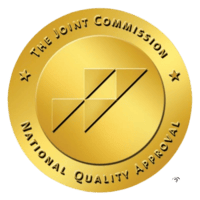Understanding Sugar Cravings
Understanding these intense desires for sweets goes beyond a lack of willpower. Research indicates that our taste buds have a natural affinity for sweet flavors, which makes sugar-laden foods appealing. These cravings can emerge from a complex interplay of biochemical processes, emotional states, and environmental factors. Consuming sugar frequently can lead to indulgence, creating a cycle that becomes difficult to break. Enter sugar substitutes, which can provide the sweet taste without harmful effects. While controversial, some studies suggest they might cause confusion in our bodies, increasing sugar cravings long-term, while others see them as part of a balanced diet to reduce sugar intake.
The Brain’s Role in Cravings
Unraveling the neural pathways reveals our brain’s role in persistent sugar cravings. Consuming sugar triggers dopamine production, activating the reward system, which leads to a cycle of craving and consumption. Repeated sugar intake causes neuroadaptations, changing neurological pathways, increasing cravings, and potentially leading to addictive behaviors. These changes make breaking the sugar intake cycle challenging. By utilizing cognitive behavioral strategies, mindfulness, and dietary modifications, we can target the brain’s role in cravings.
This helps rewire neurological pathways and control cravings. Understanding the brain’s involvement is crucial for developing interventions to reduce sugar consumption and persistently manage cravings effectively.
The Impact of Hormones
Hormonal fluctuations greatly impact sugar cravings. Insulin, regulating blood sugar, triggers cravings when levels are off-balance. Meanwhile, serotonin and leptin play significant roles too. For instance, insulin is crucial in managing sugar cravings. Foods with high glycemic index cause rapid blood sugar spikes, leading to insulin release. Frequent high-sugar consumption leads to insulin resistance, desensitizing cells. Consequently, insulin overproduction causes fat storage and weight gain, linking it to increased sugar cravings.
On the other hand, serotonin influences sugar cravings by regulating mood, appetite, and digestion. A quick boost is sought when levels are low. This temporary fix can lead to dependency, associating sugar with happiness and calmness. Leptin controls appetite, signaling fullness to the brain. Resistance impairs effectiveness, leading to overeating. High sugar intake induces leptin resistance, fueling cravings and weight gain. Conversely, balanced diets and sleep enhance sensitivity and healthy eating habits.
The Dopamine-Sugar Connection
The dopamine-sugar relationship impacts our sugar cravings. Consuming sugar floods the brain with dopamine, creating pleasure and reward sensations. This reinforces behavior, leading to cravings for repetition. Particularly, sugar intolerance and dopamine deficiency are linked. Those with intolerance often consume more sugar to compensate, deepening the sugar-dopamine cycle, potentially leading to addiction. Dopamine deficiency is linked to symptoms like fatigue, mood swings, and cravings.
Understanding this connection unravels our brain chemistry’s profound impact on dietary behaviors, illuminating new strategies for physiological and therapeutic interventions. Our evolutionary survival ensured satisfaction with high-energy food sources like sugar. Yet, modern diets overstimulate the reward system, akin to dependencies seen in drug addiction. Counter measures include sweet alternatives like fruits, sugar detoxification, and mindful eating, fostering healthier habits.
Psychological Factors in Addiction
Sugar cravings are intertwined with psychological elements that fuel addiction. Emotional triggers tied to stress or negative emotions stimulate cravings, while the dopamine reward system reinforces them. This cycle is like what is known in addiction recovery. Emotional triggers can lead to dependency, relying on sugar for regulation. Stress-induced cravings are immediate, while emotional eating concerns ongoing unease or dissatisfaction, revealing complexity. Understanding these factors enables development of strategies to combat dependency.
The dopamine reward system plays a vital role. Deficiency is linked to compulsive intake. Sugar triggers dopamine release, which produces euphoria. The brain associates it with pleasure, increasing consumption for satisfaction. Over time, dopamine production adapts, necessitating more sugar. Addressing sugar cravings involves grasping neurological and psychological intricacies to explore strategies for managing and overcoming sugar-related behavioral patterns.
The Health Consequences of Sugar
Excessive sugar poses health challenges, from minor ailments to chronic diseases. It promotes oral bacteria, leading to decay and systemic problems like heart disease. High sugar consumption also raises metabolic syndrome risks, including increased blood pressure, excess fat, and heart issues. Insulin resistance emerges from overconsumption, contributing to metabolic syndrome and obesity. Additionally, excessive sugar contributes to visceral fat, elevating cardiovascular risks.
Understanding these consequences is essential for healthier lifestyles. Recognizing sugar’s health impact guides preventive measures, fostering improved dietary patterns. By highlighting sugar’s role in these health risks, we lay the groundwork for advocating for informed choices that prioritize well-being.
Effective Strategies for Managing Cravings
Managing sugar cravings involves combining research-backed strategies and commitment. Implement cognitive and behavioral techniques to rewire sugar responses, reducing cravings. Balanced nutrition stabilizes blood sugar with proteins, healthy fats, and fibers. Regular exercise regulates appetite and diminishes cravings. Combined, these approaches can reduce the urge for sugary treats while enhancing overall health. Initiating detox methods may yield benefits, breaking the cycle of dependency and fostering healthier habits.

Final Thoughts
Sugar cravings stem from taste preferences, brain chemistry, hormones, and psychological influences. Managing these cravings demands an understanding of these mechanisms to apply effective strategies, including dietary adjustments and mindfulness. With diligent awareness and proactive measures, mitigating health risks linked to excessive sugar becomes an achievable goal, paving the path to enhanced well-being.
At BlueCrest Detox, we’re dedicated to elevating you from the struggles of substance use to the peaks of recovery and resilience. Our expert team offers personalized, evidence-based treatment services tailored to support your unique journey toward healing. Reach out to us for the compassionate care you deserve on your path to wellness. Follow us on Facebook for ongoing support, insights, and inspiration on your recovery journey.
Frequently Asked Questions
Does Sugar Addiction Have Any Genetic Components?
Scientific research suggests that genetic factors can influence sugar addiction. Variations in sugar metabolism genes, identified through genetic testing for sugar addiction, may predispose individuals to heightened cravings and potential addiction to sugar.
Can Sugar Cravings Be Transferred From Mother to Child During Pregnancy?
Prenatal nutrition impact can influence a child’s future dietary preferences. However, research is inconclusive about sugar cravings being transferred from mother to child during pregnancy. Gestational diabetes effects may play a role in this scenario.
Do Artificial Sweeteners Have the Same Effect on the Brain as Sugar?
Though often touted as safe sugar alternatives, artificial sweeteners may not have identical effects on the brain as sugar. Research is ongoing, but some studies suggest they may still trigger similar reward pathways.
Are There Specific Foods That Can Help Reduce Sugar Cravings?
Specific foods, such as those rich in healthy fats and proteins, can help reduce sugar cravings. Avocados, nuts, seeds, and lean meats are excellent options as they provide satiety and stabilize blood sugar levels.
Does Exercise Have Any Impact on Reducing Sugar Cravings and Addiction?
Yes, exercise, specifically of high intensity, can help in reducing sugar cravings and addiction. It aids in stabilizing blood sugar levels and minimizing sugar withdrawal symptoms, thereby curbing the desire for sweet substances.




